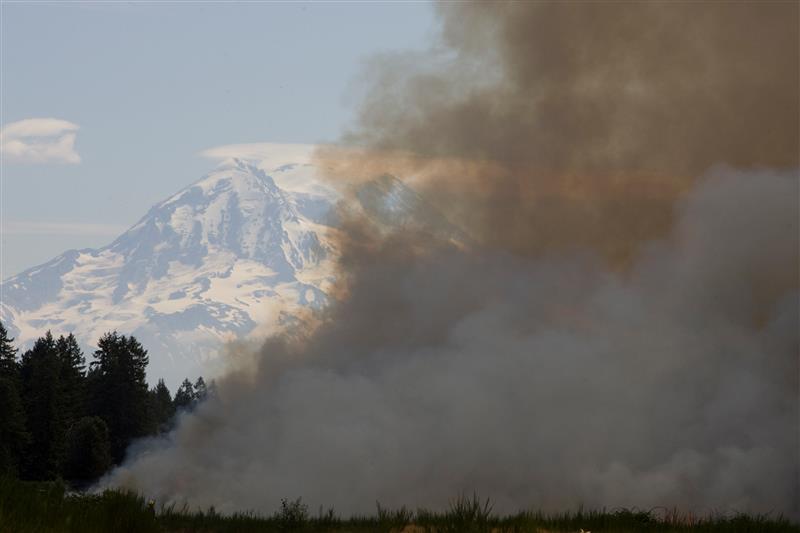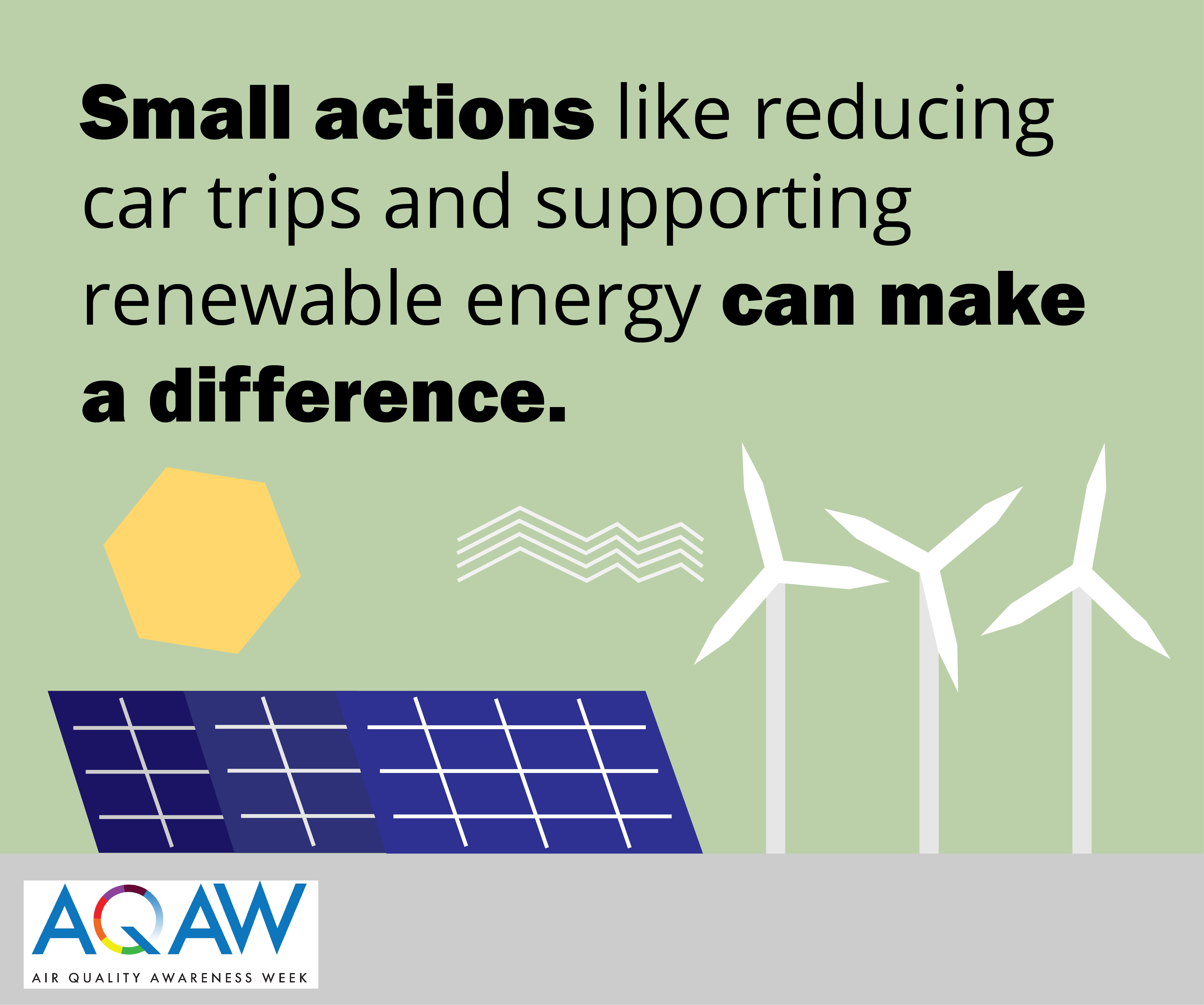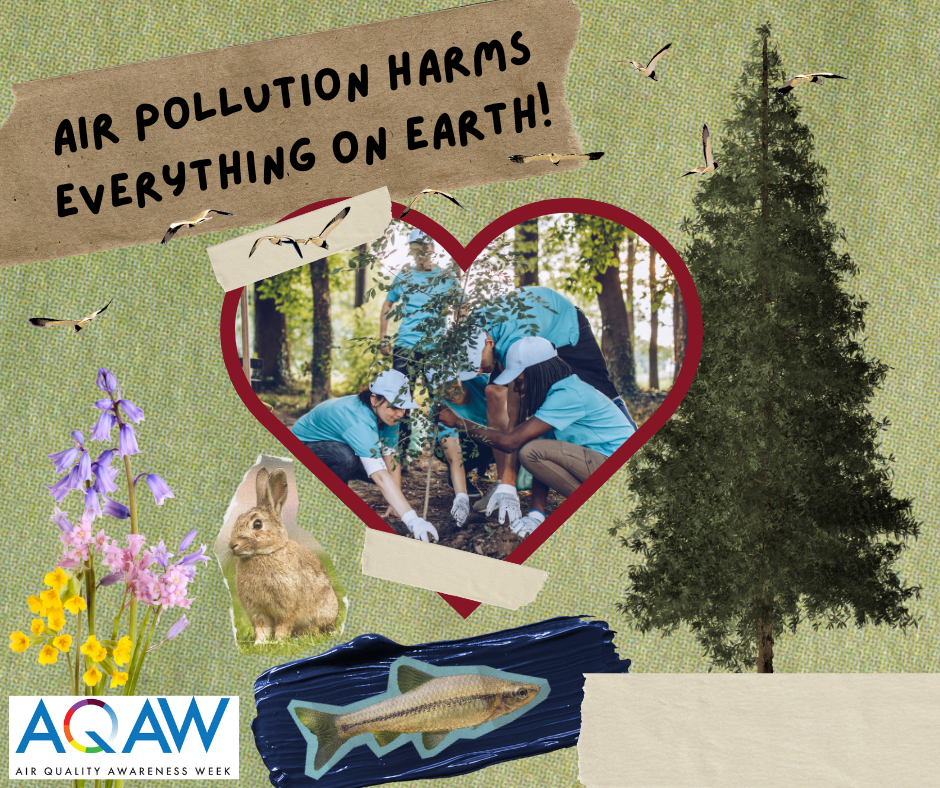
Most of us, most of the time, don’t think about breathing. We don’t think about the approximately 15 breaths per minute, 17,000 breaths per day, or more than 6 million breaths a year that we take. And we don’t think about the quality of the air we breathe. But when air is smoky from wildfires or wood smoke, we’re reminded that good outdoor air quality isn’t a certainty.
This week is Air Quality Awareness Week. And May is national Clean Air Month, a great time to learn how everyone can improve air quality.

Air Quality Awareness Week by the day
Monday, May 6 — Wildland Fires & Smoke
Climate change is driving more frequent and intense wildfires, making air unhealthy to breathe. When the air is unhealthy, the Washington State Department of Ecology and our partners provide updates, alerts, and other information using publicly available tools and resources, such as our burn bans webpage, wildfire smoke information webpage, Washington’s Air Monitoring Network map (aka the “dot map”), and the popular inter-agency Washington Smoke blog.
Tuesday, May 7 — Asthma & Your Health
Air pollution is a significant threat to everyone’s health. Exposure to air pollution can cause lung disease, worsen existing heart and lung problems, increase chronic breathing problems, elevate cancer risks, and make it harder to breathe. Research shows that diesel exhaust fine particles is the air pollutant most harmful to human health in Washington. By replacing older, high-polluting vehicles and equipment with newer, zero-emission vehicles and charging infrastructure, we can protect human health. Between July 1, 2023 and June 30, 2025, our Clean Diesel Grant Program will award millions in grants to help transform diesel-powered school bus fleets to zero-emission fleets. This will reduce harmful diesel emissions in communities and protect kids’ health.
Wednesday, May 8 — Air Quality & Climate
In Washington, landfills are a significant source of methane emissions, a potent greenhouse gas that is about 80 times more powerful than carbon dioxide over its first 20 years in the atmosphere. Reducing methane emissions from landfills will help mitigate the impacts of climate change. This is part of Washington’s plan to reduce greenhouse gas emissions to net zero by 2050. Ecology is establishing a new grant program to help landfill owners and operators reduce emissions of methane by meeting new standards for monitoring, testing, and reporting. More than $9.6 million in grant funds generated by the Climate Commitment Act will be available in summer 2024.
Thursday, May 9 — Air Quality & Environmental Justice
In 2023, after analysis and community engagement, we identified 16 Washington communities that are overburdened and highly impacted by criteria air pollutants. A 2023 Ecology report predicted that older adults in these communities are twice as likely to die from health conditions linked to breathing fine particles (PM2.5) from human-caused sources. With the help of our partners, we’re working to expand air quality monitoring and reduce air pollution in these communities. This work will be supported by a new grant program opening later in 2024.

Friday, May 10 — Air, Animals, & Plants
In addition to ultra-fine particles and diesel engine exhaust, there are hundreds of other chemicals, known as toxic air pollutants, which enter the atmosphere from various sources. Regulations require emission controls but there are no health-based, outdoor air quality standards for these chemicals. Toxic air pollutants are emitted to the air and breathed by people. They are also deposited on the land and water. Studies show this air deposition creates significant pollution that can contaminate water as well as ocean and river sediments. We have been monitoring air toxics in Seattle for more than 20 years to track trends over time and help identify potential problem areas.

